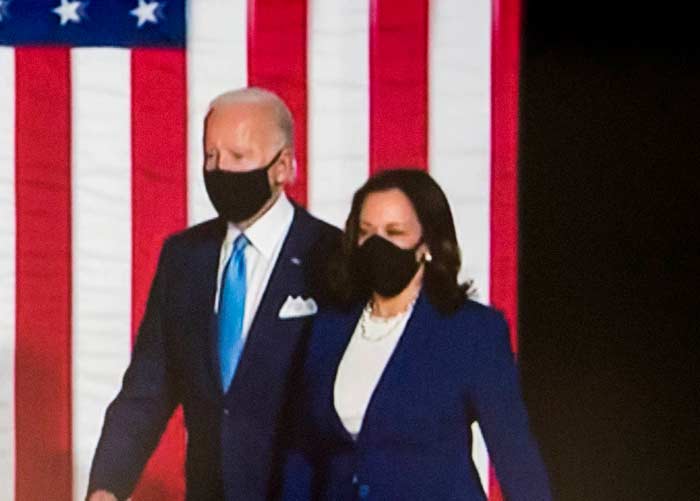National News
Kamala Harris, Biden’s Running Mate, Spent Career Breaking Barriers

By Gregory Krieg and
Jasmine Wright, CNN
Sen. Kamala Harris on Tuesday became the first Black and South Asian American woman chosen for national office by a major political party, when former Vice President Joe Biden named the moderate former prosecutor to be his running mate this fall.
Harris, 55, has spent her career breaking barriers.
In California, she was the first woman, and first Black woman, to serve as the state’s top law enforcement official. She is the first Black woman from California to serve in the US Senate, and second from any state, after Illinois’ Carol Moseley Braun. Harris is also the first person of Indian descent to appear on a presidential ticket.
And if Biden defeats President Donald Trump in November, Harris would become the first woman in US history to serve as vice president.
Harris follows Democrat Geraldine Ferraro, in 1984, and Republican Sarah Palin, in 2008, as only the third woman to be chosen as the running mate on a presidential ticket. Both of those campaigns lost to icons of the opposing parties — Ronald Reagan and Barack Obama, respectively.
During the Democratic presidential primary, Harris, who would drop out before the first round of voting, often found herself stuck in between the Democratic Party’s progressive wing, led by Sens. Bernie Sanders of Vermont and Elizabeth Warren of Massachusetts, and its moderate establishment, headlined by Biden. The left criticized Harris’ record on criminal justice, from her election as district attorney in San Francisco to her time as California’s attorney general.
Those concerns were amplified after Harris’ spectacular entry into the race in January 2019, when her announcement was greeted by an adoring crowd of 20,000 outdoors in Oakland, California. Her campaign would become the most expansively waged by any Black woman in American political history. Decades after Shirley Chisholm ran for president in 1972, Harris amassed more than $35 million dollars over 11 months, despite the challenges that Black women candidates face raising in money.
Harris’ childhood

Strong, ambitious women helped shape Kamala Harris’ life from infancy. Her warrior women stories include her mother
Shyamala Gopolan Harris, unpictured, and her late paternal great grandmother, Miss Iris Finegan of Jamaica, above. “My
mother used to say, don’t sit around and complain about things, do something.” Yesterday, Democratic Senator Joseph Biden
named her as his Vice-Presidential running mate. She thanked the women who helped pave the path for her and said, “America
is crying out for leadership.” In photo at top, she’s seen in her late mother’s research lab.
Harris spent her childhood in that cradle of American left-wing activism: Berkeley and Oakland, where she was born in 1964. Her mother was a cancer researcher and her father, who is of Jamaican descent, a professor of economics — both were involved in the Civil Rights movement and Harris, along with her younger sister, Maya, who chaired her presidential campaign, have spoken about growing up in a world of activism.
After their parents divorced, the Harris sisters moved with their mother, Shyamala Gopalan Harris, to Canada, after Gopalan took a position teaching at McGill University and continued her cancer research at Jewish General Hospital in Montreal, where Harris would graduate high school. Harris had an especially close relationship to her mother, which she has discussed often in public.
“My mother, she raised my sister Maya and me, and she was tough,” Harris once said of Gopalan, an acclaimed breast cancer researcher who died in 2009. “Our mother was all of 5 feet tall, but if you ever met her, you would’ve thought she was 10 feet tall.”
Harris attended Howard University in Washington, DC, a leading historically black college and university. There, she joined the Alpha Kappa Alpha Sorority, the country’s oldest Black sorority.
In June 2009, Harris spoke about her experience at Howard in a campaign video.
“At an HBCU, a young person is shown that they can be anything. You step out of the minority and you become the majority,” Harris said. “Everything tells you exactly what Aretha (Franklin) told us: You are young, gifted and Black.”


